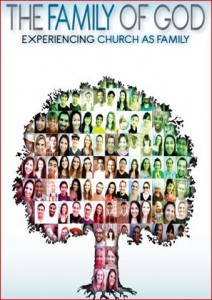The Psalms often give us clear pictures of God’s character and nature that we don’t see in other parts of Scripture. Our songs today model these traits of God as we lift up our voices to praise Him together. Often a Psalm will  begin with an exhortation for us to sing. In Psalm 68 we read, “Sing to God, sing praises to his name; lift up a song to him who rides through the deserts; his name is the LORD; exult before him!” Then in verse 5 and following he expands on his exhortation be explaining why we should sing to God. Verses 5 and 6 of this Psalm says, “Father of the fatherless and protector of widows is God in his holy habitation. God settles the solitary in a home…” It’s that last phrase that struck me as I have been thinking about family matters. God puts us in families.
begin with an exhortation for us to sing. In Psalm 68 we read, “Sing to God, sing praises to his name; lift up a song to him who rides through the deserts; his name is the LORD; exult before him!” Then in verse 5 and following he expands on his exhortation be explaining why we should sing to God. Verses 5 and 6 of this Psalm says, “Father of the fatherless and protector of widows is God in his holy habitation. God settles the solitary in a home…” It’s that last phrase that struck me as I have been thinking about family matters. God puts us in families.
Dr. Ted Ward was a professor at Michigan State University and at Trinity Seminary near Chicago. In his work on the family he refers to this verse when he discusses the three basic functions of a family. The first function, according to Ted, is protective. I think this is what the verse is referring to in the context of widows and orphans. When he explains this function, John Huffman says, “A family helps the individual, both child and adult, become more competent to deal with social realities. The very way we are held, fed by bottle or breast, talked to, prayed for, nurtured or not nurtured has a profound future impact on how we view ourselves and others. Healthy parenting provides a secure base of acceptance. It provides a secure base of acceptance from which an individual can move out into the world. We achieve competence. We become better able to reach out.”
I can’t help but relate these thoughts to the church family also. The Psalm might even be referring to the family of God because in its context it refers to widows and orphans. These are people without immediate families. God has placed us in a family through faith. As a spiritual family the church is supposed to protect people from the dangers in the world. We should help each other grow into healthy, productive citizens of the community. We urge each other in in our development as mature Christ-like adults. Huffman adds that as a church “we teach them how to eat the Bread of Life. All this is done within this caring community called the family of God. We protect each other. That is why God sets the lonely in families. We need to protect each other.” It’s obvious that it’s the nuclear family in which the physical provisions of food, shelter and clothing are made. But, as Huffman concludes, “A healthy church becomes the family of God to us, supplementing and complementing contributions of a good home and helping us to make good the deficiencies of a poor home. They help us cope with life, enabling us to live in community.”